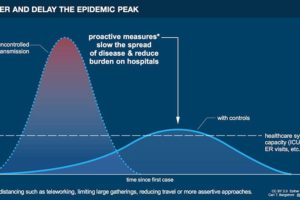It’s been a while since I have posted a blog. Like so many, I have been consumed by the repercussions of the COVID-19 pandemic. Some of this time has been spent volunteering with organizations that help those in need. In addition I have been busy working on a multipart series on the impacts of the animal agriculture industry. I suggest you follow my Facebook or Instagram pages to see the announcements as they are released but you can check out the first video here on my blog.
Well, now I’m ready to get back to writing and help you understand more about topics that many fad dieters, health coaches, or personal trainers don’t have the knowledge or expertise to adequately comment on. While they can help you get motivated, many simply don’t have the education or research experience to take a deep dive into your health concerns and make the connections that are necessary to help you feel your best.
So let’s start by taking a look at a vitamin that is essential to our health but is shrouded in tons of confusion due to misinformation by fad diet pushers and supplement manufacturers, vitamin B-12.
B-12 is an essential vitamin with many roles. It is an essential cofactor (fancy word for a chemical needed to help facilitate a chemical reaction in the body) for the conversion of homocysteine to methionine. This is part of the methylation cycle which turns the amino acid homocysteine to methionine. This cycle is an essential part of energy metabolism hemoglobin synthesis, but when our bodies get to much homocysteine (typically by not getting enough nutrients to help convert homocysteine to methionine) it can lead to damage throughout our body. This is because homocysteine is a power pro-oxidant (the very things we are trying to combat with foods rich in anti-oxidants). No wonder those with high levels of homocysteine have been shown to have increased risk of heart attacks and strokes due to the way that it increases the risk of blood clot formation. Moreover this isn’t a chemical we can avoid. It’s an essential part of a healthy metabolism and our body, when properly nourished, has no problems dealing with it and keeping it in its place.
The richest source of B-12 in foods is from meat, due to the supplementation of cattle by the animal agriculture industry. There are many fad diet pushers (typically Paleo, Keto, and Carnivore diet folks) who claim that vegan and vegetarian diets put us at a greater risk for B-12 deficiency, fortunately this is not the case as it has been demonstrated in the research that omnivores have similar B-12 deficiency rates as vegans and vegetarians for reasons I will explain below.
B-12 is produced by bacteria and it is thought that in the past, people got their B-12 directly from microbes in the soil that made it into our food. Back then, there was no B-12 supplementation in animals and so B-12 in meat is a relatively modern phenomenon. It was deemed necessary to supplement livestock because with increased adoption of sanitation and hand washing, B-12 levels plummeted in the population. This is a good thing though because these practices save millions of lives a year through reduced rates of bacterial infectious diseases. When was the last time you heard of someone catching typhoid fever or typhus for instance? One of the main drivers of B-12 deficiency is damage done to the lining of the stomach.
Of all the vitamins that is the most important for vegans and vegetarians to supplement, B-12 is the most important because vegans and vegetarians have to skip the middle man. This middle man is the livestock, which consumption of increases rates of other health problems such as cardiovascular disease and diabetes to name two. And no, organic livestock doesn’t make the saturated fat, cholesterol and TMAO in the meat any healthier.
Ok, so what drives B-12 deficiency?
B-12 absorption is a bit more complex than most other vitamins and minerals. In order for our bodies to absorb it we must activate it and this happens in our stomachs. In addition to producing hydrochloric acid to digest our food, the stomach also produces a chemical called intrinsic factor. The stomach acid will help the B-12 get released from the food we eat. Then the B12 binds to intrinsic factor to form a B12-intrinsic factor complex that can then be absorbed in our small intestine. Due to the complexity, any damage done to this process will make it more difficult to absorb adequate levels of B-12. Unfortunately, over the last several decades millions of Americans have damaged their stomach lining due to excess use of over the counter and prescription drugs, fad diets, and highly processed foods. One of the big offenders being ibuprofen, but anything that damages the wall of the stomach lining can throw a wrench in this system, such as stomach cancers or stomach ulcers. This includes messing with the acidity of our stomachs. Without enough stomach acid B12 won’t be released from meat, and so over use of prescription or over the counter acid blocking medications will also decrease B-12 absorption and this can snowball over time. This is not the end of the story though, because intrinsic factor also needs a strong acidic environment in order for B12 and intrinsic factor to bind together. So you can see how chronic fussing with our stomach acidity can lead to B-12 deficiencies and why all people are at equal risk of a B-12 deficiency across different dietary patterns.
Ok, thanks for the explanation, but how much should I supplement?
Well, this depends on your health history and current circumstances. Many trainers and fad diet health coaches like to recommend supplements with high levels of B-12, mostly because they feel B12 is harmless, and they don’t have the qualifications to get you the tests you need to know for sure. I find this very frustrating because they are not using any data to base their recommendation on. Yes, all otherwise healthy vegans and vegetarians should supplement with B-12 because they are not getting supplemented via meat intake. This being said, some will need more than others and some omnivores will need more as well. The increased need has less to do with intake of animal protein as it does with the factors that limit B-12 absorption that I mentioned above.
If you have had chronic heartburn, chronically use over the counter pain medications, or have had any damage to your stomach lining (from cancer, ulcers, or even surgery on the stomach-gastric by-pass for example) then you should talk to your doctor about having an endoscopy of your stomach to see the extent of this damage. The more damage there is, the more likely it is that you will need higher doses of B-12. Please make sure to discuss this with your doctor, naturopath, or certified nutritionist though so you are not paying extra for a high dose B-12 supplement that’s not necessary. In many cases, healthy people actually take far more than they need. Some omnivores may be getting B-12 from their meat intake, while also getting some from a multivitamin, a B-complex vitamin, a sleep supplement, and some form of protein powder or meal replacement shake. B-12 is being put in all sorts of supplements and health products these days. If you have ever taken a multivitamin, then you were supplementing with B-12 and likely had no idea.
B-12 has generally been considered safe and that explains why there is no established upper limit of intake, and why we are seeing it put in everything while also seeing naturopaths hand out B-12 injections like candy on Halloween. That being said, there is new evidence showing that B-12 is not as benign as we once thought. A study out of the Netherlands gave 500mcg of B-12 and 400mcg of folic acid to participants daily for 2-3 years. The result was that this was associated with a 77% greater risk of colorectal cancer versus the placebo group and a 25% higher risk of all cancer rates.1 In addition, a completely separate study in the Netherlands found that those with greater levels of B-12 in the blood, ended up having a greater risk of dying over an 8-year period than those who had lower levels but were not deficient.2 Another recent study showed that supplementation with B-12 during chemotherapy treatment actually increased the risk of being disease free when supplemented either before or during treatment.3 On top of the potential cancer risks of supplementing with high doses of B-12, there are metabolic implications as well. A 2017 study found that supplementing 1,000mcg of B-12 daily was found to increase the risk of heart attacks, stroke, and ultimately death in people with type 1 or 2 diabetes who had advanced kidney disease.4 Interestingly, the authors thought that the B-12 supplementation would help reduce heart attacks and strokes due to the way that B-12 participates in the recycling of homocysteine but in actuality it appears that too much B-12 may actually promote oxidation using chemical pathways we have not yet fully fleshed out.
While this last study may not apply to you directly, it does highlight the importance of getting your supplement advice from a qualified medical professional such as a certified nutritionist, dietician, doctor, or naturopath rather than a personal trainer, health coach, or someone with what amounts to a worthless nutrition certification (the weekend warrior types whose total education involved a week-long or weekend course) but lacking any formal education such as a graduate degree and an internship.
If you want to learn more about your B-12 status or other important considerations while going plant-based, or increasing you whole plant food consumption, then reach out so we can take a deep dive into your health history.
References
1. Oliai Araghi, S., et al. (2019). Folic Acid and Vitamin B12 Supplementation and the Risk of Cancer: Long-term Follow-up of the B Vitamins for the Prevention of Osteoporotic Fractures (B-PROOF) Trial. Cancer epidemiology, biomarkers & prevention : a publication of the American Association for Cancer Research, cosponsored by the American Society of Preventive Oncology, 28(2), 275–282. https://doi.org/10.1158/1055-9965.EPI-17-1198
2. Flores-Guerrero, J. L., et al. (2020). Association of Plasma Concentration of Vitamin B12 With All-Cause Mortality in the General Population in the Netherlands. JAMA network open, 3(1), e1919274. https://doi.org/10.1001/jamanetworkopen.2019.19274
3. Ambrosone, C. B., et al. (2020). Dietary Supplement Use During Chemotherapy and Survival Outcomes of Patients With Breast Cancer Enrolled in a Cooperative Group Clinical Trial (SWOG S0221). Journal of clinical oncology : official journal of the American Society of Clinical Oncology, 38(8), 804–814. https://doi.org/10.1200/JCO.19.01203
4. House, A. A., et al. (2010). Effect of B-vitamin therapy on progression of diabetic nephropathy: a randomized controlled trial. JAMA, 303(16), 1603–1609. https://doi.org/10.1001/jama.2010.490






